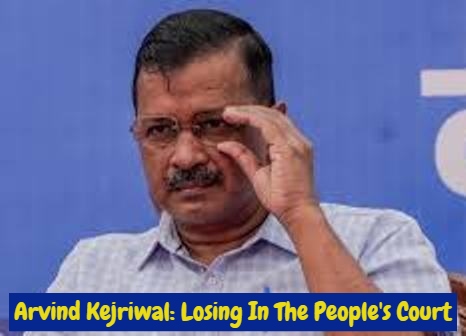

By Sunil Garodia
First publised on 2025-02-08 15:18:32
Despite the confidence exuded over the past year, even senior AAP leaders, including Arvind Kejriwal and Manish Sisodia, were aware that anti-incumbency and the controversies surrounding their administration - such as the liquor policy scandal and the Sheesh Mahal controversy - had significantly diminished their electoral prospects. After two consecutive terms, their ousting from power seemed inevitable.
Kejriwal's claim, post-election, that people on the streets had assured him of AAP's victory was either an attempt to maintain morale or a reflection of conversations in the few constituencies where the party ultimately secured a win. However, the larger picture told a different story.
The past five years were marked by policy paralysis, effectively undoing much of the goodwill AAP had built in its earlier tenure, particularly in the education and healthcare sectors. This stagnation led to disillusionment among second-rung leaders and grassroots workers - many of whom had once voluntarily championed the party's cause. As a result, enthusiasm waned, organizational strength weakened, and some even abandoned the party altogether. Kejriwal and his core team ignored these warning signs, and the consequences have been stark.
Kejriwal's foray into politics was driven by a vision of transforming Indiaâs political landscape. Ironically, it was politics that transformed him instead. The activist who once championed clean governance and a simple lifestyle - living in a modest flat and using an unassuming vehicle - found himself embroiled in allegations of corruption and extravagance, epitomized by the controversial renovation of his official residence. This shift distanced him from the very people he once sought to represent, making him appear no different from the traditional politicians he had vowed to replace.
The verdict of the Delhi electorate was decisive. Following their release on bail in the liquor scam case, both Kejriwal and Sisodia had claimed they would only assume office if they received a mandate from the people. The election results, however, painted a clear picture - both leaders lost their seats, signaling public discontent. This defeat marks a significant downfall for Kejriwal, who once nursed aspirations of leading the country as Prime Minister.
AAP's journey from an anti-corruption movement to a beleaguered political entity serves as a stark reminder of how power can alter the course of even the most idealistic leaders. Whether the party can rebuild its credibility remains to be seen, but for now, the people of Delhi have spoken.











